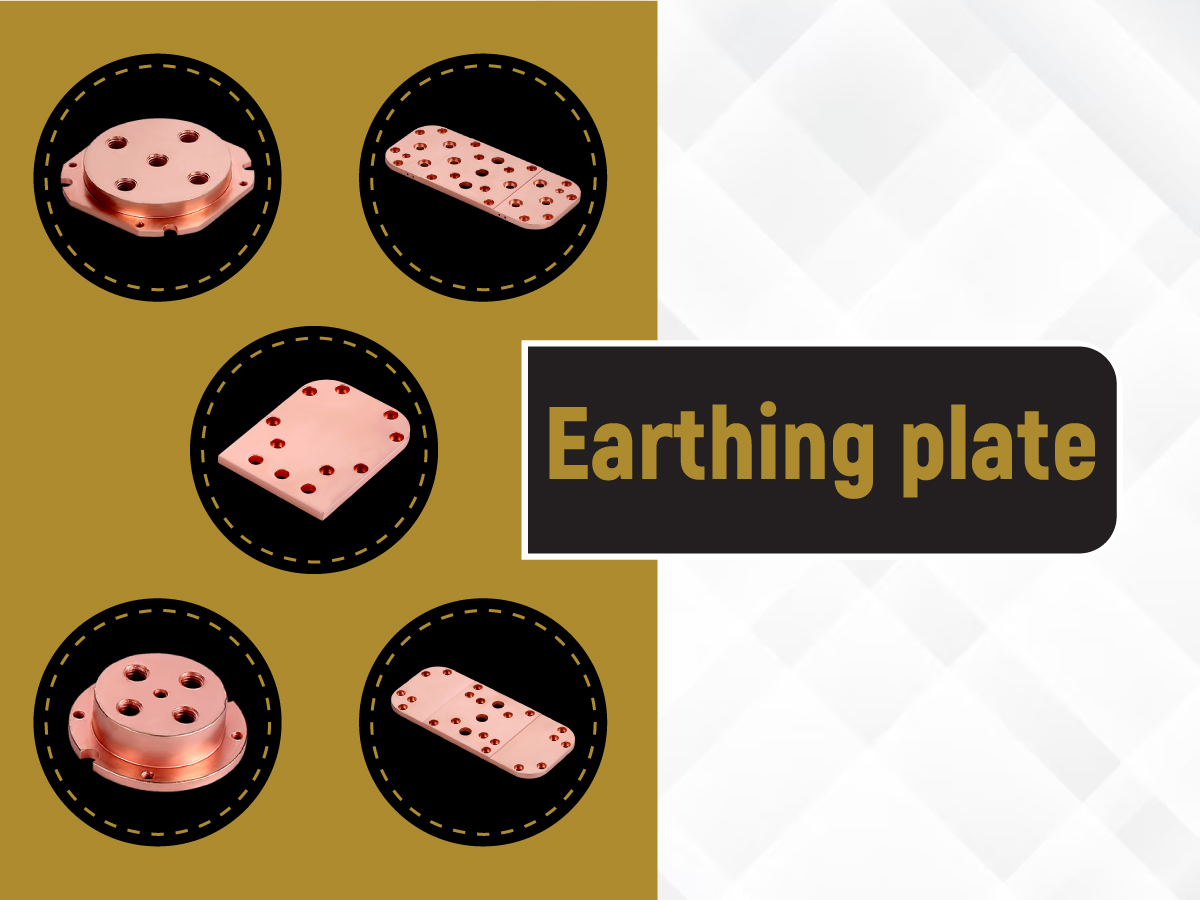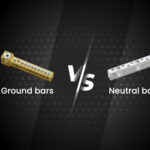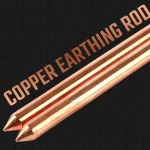Understanding Earthing Plates: Essential Functions, Types, and Applications!

In any electrical system, safety and reliability are paramount, and a well-designed earthing system plays a crucial role in achieving both. Earthing plates are essential components that help dissipate fault currents safely into the ground, preventing electrical hazards such as shocks, fires, and equipment damage. Teron Metal Components, a trusted name in electrical solutions, offers high-quality earthing plates designed for durability and efficiency. Understanding the functions, types, and applications of earthing plates is essential for ensuring robust grounding in residential, industrial, and commercial setups.
Earthing Plate Installation & Tools
The installation process for an earthing plate can vary based on the type of plate being used, as well as the soil conditions and surrounding environment. However, the general procedure typically follows these essential steps:
- Choose an appropriate location for the earthing plate, ensuring it is a flat, open area free from obstacles. The site should also provide easy access to the necessary tools and equipment for a smooth installation process.
- Remove any vegetation or debris from the installation area to ensure proper contact between the earthing plate and the soil. Clearing the site will also facilitate the digging process and make installation more efficient.
- Use a shovel or suitable digging tool to excavate a hole for the earthing plate. The hole should be deep enough to bury the plate completely and slightly wider than its dimensions to allow for proper placement.
- Position the earthing plate inside the hole, ensuring it is level and correctly aligned.
- Use a tamper or similar tool to compact the soil around the earthing plate, ensuring firm contact between the plate and the surrounding soil.
- Connect a conductor, such as copper or copper-clad steel, to the earthing plate. This conductor serves as a link between the earthing plate and the grounding system of the electrical circuit.
- Test the earthing plate using a grounding meter or similar device to confirm proper installation and functionality.
Installing an earthing plate may require tools and equipment such as a shovel, digging tool, tamper, conductor, grounding meter, and other necessary materials. Additionally, it is essential to follow local regulations and standards for earthing systems to ensure a safe and compliant installation.
Applications
- Industrial Facilities: Earthing plates create a safe pathway for fault currents to discharge into the ground, minimizing the risk of electrical shock and fire hazards.
- Commercial Buildings: Earthing plates protect sensitive electrical equipment by grounding systems, preventing damage from voltage surges, transient events, and lightning strikes.
- Telecommunications: Made from durable materials such as copper or aluminum, earthing plates offer excellent resistance to corrosion and environmental factors, ensuring long-term reliability.
- Renewable Energy: Designed for easy installation, these plates help minimize labor costs and shorten project timelines.
- Transportation Infrastructure: Available in various sizes and designs, earthing plates provide customized grounding solutions to meet specific project requirements.
Maintenance Requirements for Earthing Plates
- Earthing plates should be inspected at least once a year to identify any signs of damage or deterioration. This includes checking for corrosion, cracks, or other defects that could impact performance. Any damaged or faulty plates should be repaired or replaced as needed.
- Beyond regular inspections, earthing plates should also be examined after major storms or events that could impact the earthing system. This includes assessing the plate for damage and verifying the integrity of the conductor and other components. Any compromised parts should be repaired or replaced as needed.
- Overall, earthing plates require minimal maintenance, but regular inspections are essential to ensure the system remains effective and reliable. Additionally, it is important to adhere to local regulations and standards for earthing system maintenance.
Quality Considerations of Earth Plates
When purchasing earthing plates, also known as ground or grounding plates, it is important to evaluate certain quality characteristics to ensure a reliable and high-performance product. Key factors to consider include:
- Material: The earthing plate should be made from corrosion-resistant and highly conductive materials to ensure long-term effectiveness and durability. Common options include copper, aluminum, and stainless steel.
- Size and shape: The earthing plate’s size and shape should suit the specific application, soil conditions, and environment. It must be large enough to ensure effective grounding while remaining practical for installation and maintenance.
- Connections: The earthing plate’s size and shape should suit the specific application, soil conditions, and environment. It must be large enough to ensure effective grounding while remaining practical for installation and maintenance.
- Testing and certification: The earthing plate should be tested and certified to comply with relevant standards and regulations, ensuring safety and effectiveness. Certification may come from the manufacturer or through third-party testing by an independent organization.
- Warranty and support: The earthing plate should include a warranty and manufacturer support to help if any issues arise. This may cover defects in materials or workmanship, along with access to expert support for inquiries or installation guidance.
Conclusion
In conclusion, earthing plates play a crucial role in grounding systems and are widely used across various industries, including electrical and electronics, telecommunications, energy, and construction.
At Teron Metal Components, we provide high-quality Earthing Plates tailored to meet your specific requirements. Whether you need expert advice, have product inquiries, or are looking for customized solutions, our team is always ready to assist you. With a strong commitment to quality and customer satisfaction, we ensure that our earthing plates and electrical components meet the highest industry standards. Feel free to reach out to us at sales@teronmetalcomponents.com, and our experts will be happy to help you find the best grounding solutions for your needs. We look forward to connecting with you and providing reliable and efficient products for your projects.



